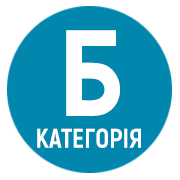DIGESTS ABOUT ELECTIONS UNDER GUNSHOTS, MANIPULATION AND POPULAR SUPPORT
DOI:
https://doi.org/10.32689/2522-4603.2024.4.9Keywords:
digests, discourse, extraverbal context, manipulation, normalization, euphemisms, linguopragmatics, propaganda conflict, precedent phenomenon, public opinion, prototext, xalting, text-recipient, metaphor, content analysisAbstract
The article, based on the analysis of sociological research conducted in 2021-2023 by independent public centers, proves that with the development of information flows (a leading characteristic of a new type of society), social networks and messengers as a tool of political manipulation acquire special importance. Social networks become part of any political process and create a virtual environment that changes the existing political reality. Mass media are forming a new political reality, in which manipulation technologies are turning into a key tool for controlling the political behavior of the masses. A comprehensive review of research into the phenomenon of manipulative technologies, its evolution and adaptation and reconstruction in accordance with current requirements, indicate the need to use «transparent» «clean» electoral technologies in the electoral process, which turn into a key tool for controlling the political behavior of the masses. The role of language means in the process of manipulation and the influence of the political discourse of mass media on the formation of public opinion, the use of various methods, in particular such as normalization, euphemisms, precedent phenomena, and others, are determined. Realizing that the art and technology of manipulation consists in creating conditions for misleading the object of manipulation (for example, voters or other subjects of political activity) with whom there are competitive relations, the politicaltechnological foundations of political manipulation must be identified and cut down on the basis the use of material resources and not only means, as well as informational and analytical training and consulting support for the political activity of all members of society. The relevance of this study lies in the fact that in Ukrainian society there is distrust of the authorities and the opposition, and political forces want to gain power in the elections. Therefore, during the elections, technologies that are able to ensure the loyalty of voters are put forward in the first place.
References
Тихомирова Є. Пропаганда. Глосарій. Навчальний енциклопедичний словник-довідник із питань інформаційної безпеки/за заг. ред. д-ра. політ. наук, проф. Шуляк А. М. Київ: МПБП «Гордон», 2019. 366–369.
Савчук А. Пітер Померанцев: Мета російської пропаганди – щоб ніхто нікому не довіряв. Українська правда, 31 березня. 2015. URL: https://www.pravda. com.ua/articles/2015/03/31/7063251/
Кривошеїн В. Іміджологема політична. Новітня політична лексика (неологізми, оказіоналізми та інші новотоври)/за заг. ред. Н. М. Хоми. Львів: Новий Світ–2000, 2015. 492 с.
Поліщук І. О., Рум’янцева С. В. Політичне маніпулювання: сутність та проблема його обмеження. Вісник Національної юридичної академії України імені Ярослава Мудрого. Сер.: Філософія, філософія права, політологія, соціологія. 2013. № 2. С. 199–206.
Доценко Е. Л. Психология манипуляции: феномены, механизмы и защита. Москва: ЧеРо; Юрайт, 2000. 342 с.
Євланова О. О. Місце феномена маніпуляцій в політичному дискурсі. Вісник Харківського національного університету імені В. Н. Каразіна Серія «Філологія». 2021. Вип. 88. С. 93–97.
А. Нальотов. Виборчі технології як чинник впливу на масову свідомість. Політичний менеджмент. 2007. № 5. С. 126–137.
Максімцева Н. О., Максімцев М. Г. Публічні маніпуляції під час виборчого процессу як загроза політичної безпеки та реалізації влади народу.
Чубатенко О. М. Маніпулятивні технології у виборчих процесах України. УДК 324-049.2(477). DOI https://doi.org/10.24195/2414-9616.2020-4.9
Вакуленко А. Політичне ианіпулювання в умовах інформаційного суспільства:український контекст. URL: https://doi.org/10.34142/24130060.2023.27.2.03
Захаренко К. Роль громадських організацій у формуванні національної інформаційної безпеки. НДЦ Українського державного університету імені Михайла Драгоманова; м. Київ, Україна.





